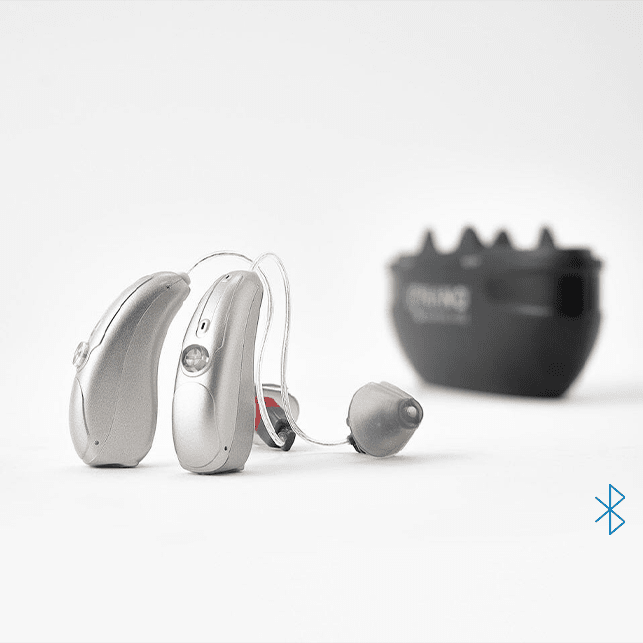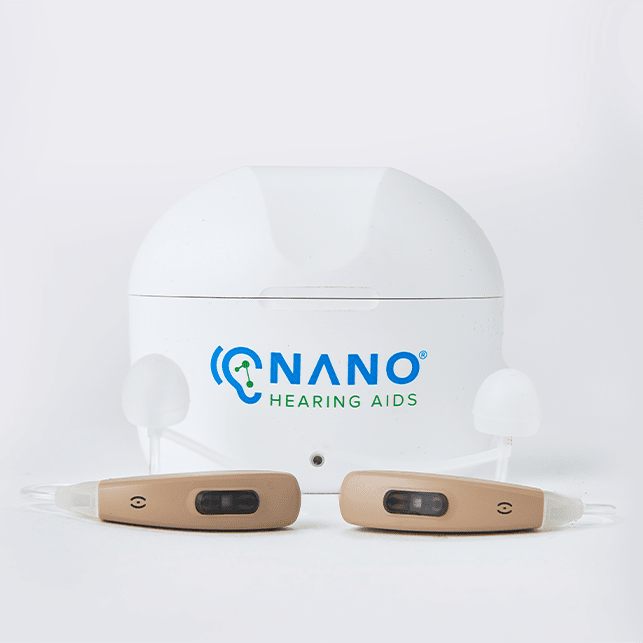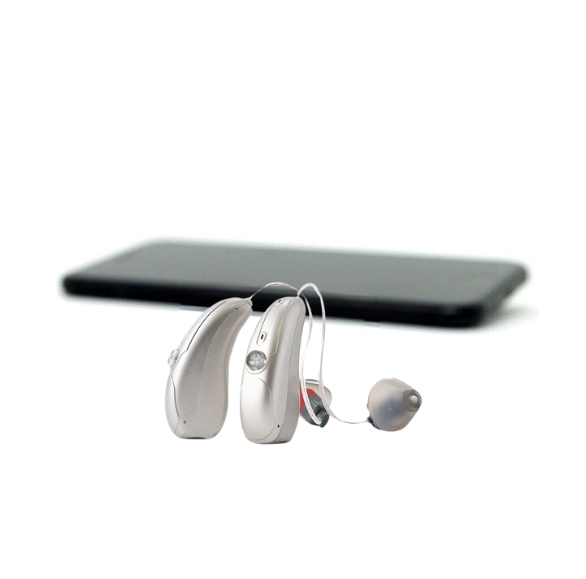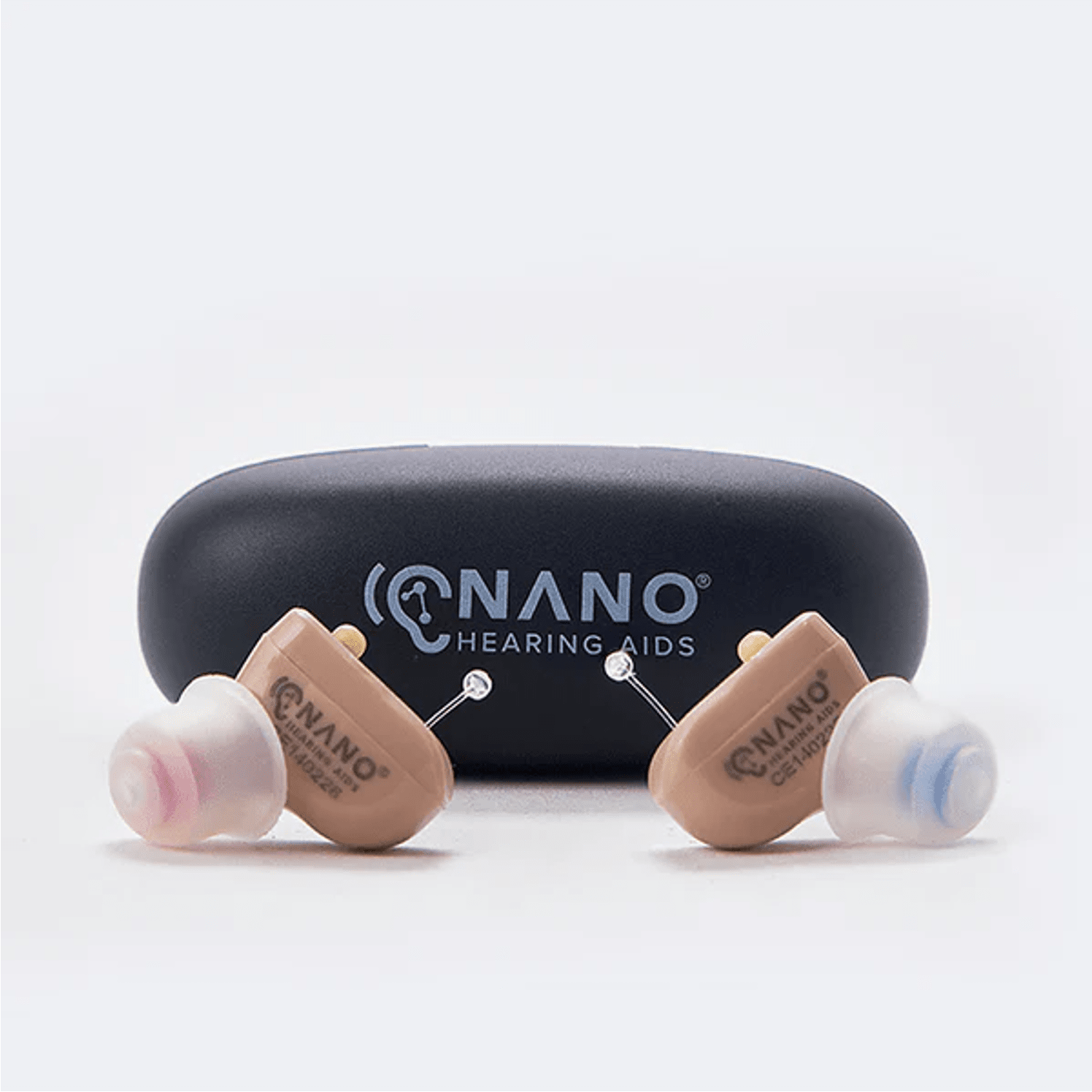Amplifiers and hearing aids are often confused as being the same thing, but this is incorrect. In fact, they serve very different purposes. While hearing aids are medical devices intended to improve hearing for those with hearing loss, amplifiers are intended for those without hearing loss who simply want to increase sounds in specific situations.
In this article, you’ll learn the exact differences between amplifiers and hearing aids.
What is the Difference Between Amplifiers and Hearing Aids?
There are several differences between amplifiers and hearing aids:
Hearings Aids Are Designed for Hearing Loss
Hearing aids are medical devices that are intended for those with hearing loss who want to improve their hearing. Over-the-counter hearing aids (OTC hearing aids) can help those with mild to moderate hearing loss and do not require a prescription. Prescription hearing aids are available for those with severe hearing loss.
Amplifiers, on the other hand, are simply intended to increase the volume of sounds. This can include sounds while hunting or at concerts, and similar recreational activities. They are not designed for those with hearing issues.
Hearing Aids are Regulated By the FDA, Amplifiers are Not Regulated
Hearing aids are regulated by the FDA and are classified as approved medical devices. For example, OTC hearing aids are FDA Registered, Class 1. This means they are real hearing aids and are generally safe to use when compared to higher-classified hearing aid devices. Other classifications might contain risks such as excessive amplification of sound or the development of tinnitus, which is a ringing sensation in the ears.
FDA Registered, Class I OTC hearing aids ultimately provide users with less risk of harming the ears and therefore an overall safer experience.
Amplifiers are not regulated as medical devices and therefore, can potentially damage ears.
Hearings Aids Are Customizable
Hearing aids and amplifiers are not one-size-fits-all, which is why customizable features are important. Amplifiers do not provide any customization since they are intended for general use.
Hearing aids tend to be very customizable. Specifically, OTC hearing aids contain several customizable ear domes, ensuring you find a fit that is comfortable for your ears.
Hearings Aids Have Background Noise Reduction Technology
Background noise reduction technology plays an important role in the design of OTC hearing aids. Specifically, it reduces background noise and makes it easier for individuals to hear more clearly while wearing hearing aid devices.
Amplifiers do not provide this level of advanced technology, since they are not designed to address specific hearing issues.
Do You Need OTC Hearing Aids?
As mentioned above, OTC hearing aids are intended for those with mild to moderate hearing loss and do not require a prescription or any doctor visits.
Someone with mild to moderate hearing loss might experience one or all of the below:
- Trouble hearing conversations in noisy places and with a lot of background noise
- Difficulty hearing someone on the phone
- Feeling tired from listening
- Finding it difficult to follow conversations and hear people in group settings
- Needing to turn up the volume on the TV or radio, even if others say that it’s loud
Prescription hearing aids are intended for those with severe hearing loss. Symptoms of severe hearing loss can include (but are not limited to):
- Difficulty hearing loud noises, even in quiet environments
- Difficulty hearing conversations
- You might find yourself reading lips as a result of your hearing loss
If you’re concerned you have severe hearing loss, it’s best to schedule an appointment with your doctor or a hearing aid specialist. However, if you believe your hearing loss is mild or moderate, OTC hearing aids might be the solution you need to improve your hearing and quality of life.






